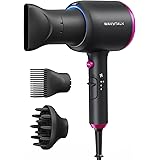Introduction to AI in Salons
Artificial Intelligence (AI) has emerged as a transformative force across multiple sectors, including healthcare, finance, and entertainment. However, its impact is equally significant in the salon industry. The increasing prevalence of AI technologies has introduced novel ways to enhance customer experiences and streamline operations within salons. As businesses continue to adapt to the digital landscape, understanding the implications of AI in salons becomes crucial.
AI refers to the simulation of human intelligence processes by machines, particularly computer systems. These processes include learning, reasoning, and self-correction. In the salon context, AI technologies can analyze customer data, predict trends, and manage appointments more efficiently. New platforms equipped with AI capabilities can suggest personalized hairstyle recommendations based on face shape, skin tone, and personal preferences, thus enhancing client satisfaction and engagement.
The integration of AI in salons primarily focuses on improving customer experience and operational efficiency. With advanced scheduling software, salons can optimize appointment management and reduce wait times, providing a seamless experience for clients. Moreover, AI can assist stylists by analyzing customer interactions and preferences, allowing professionals to tailor services to individual needs. This level of personalization not only attracts new customers but also encourages loyalty among existing clientele, directly impacting the bottom line.
As we delve deeper into the effects of AI within salons, it becomes evident that these technological advancements are not merely trends but essential components of a modern salon’s operational framework. The adoption of AI tools fosters an environment conducive to innovation while paving the way for enhanced artistry, efficiency, and customer care. The rest of this blog post will explore specific applications of AI technologies in salons, illustrating how they can revolutionize the industry.
Personalized Customer Experiences Through AI
The incorporation of artificial intelligence (AI) in the salon industry has revolutionized the way businesses engage with their clients. By leveraging advanced data analysis and machine learning algorithms, salons can create personalized experiences that cater to the unique preferences of each client. This transformation is crucial, especially in an era where customer satisfaction is paramount.
AI technologies enable salon professionals to gather and analyze a wealth of information about their clients. From past appointments and services received to product usage and even social media interactions, every data point contributes to a comprehensive customer profile. Through this process, salons can gain invaluable insights into individual preferences, allowing them to tailor services such as haircuts, coloring, and treatments.
One notable application of AI in this context is predictive analytics. By examining historical data and identifying patterns, salons can anticipate a client’s future needs. For instance, if a client regularly opts for a specific hair treatment every few months, AI can remind salon staff to offer this service during the client’s next visit, thus enhancing customer satisfaction and loyalty.
Furthermore, AI algorithms can make personalized recommendations based on an individual’s profile. For example, if a client frequently chooses vibrant hair colors, the system can suggest complementary hues or innovative styling techniques that align with their aesthetic. This level of customization not only improves the client experience but also boosts the salon’s expertise and reputation as an innovative service provider.
In addition, the use of AI can streamline appointment scheduling by allowing clients to book their visits based on availability that suits their past preferences. This commitment to enhancing the client experience through AI-based insights demonstrates how salons can remain competitive in a rapidly evolving marketplace, ultimately leading to increased satisfaction and loyalty. As AI continues to develop, its role in personalizing salon services is expected to expand further, creating even more tailored experiences for clients.
AI-Powered Booking Systems
In recent years, artificial intelligence (AI) has significantly transformed various industries, and the salon sector is no exception. The integration of AI-powered booking systems has ushered in a new era of appointment management, enabling salon owners and clients to enjoy a more efficient and responsive experience. These advanced systems leverage algorithms and data analytics to optimize appointment scheduling, reducing cancellations and no-shows while enhancing customer satisfaction.
One of the primary advantages of AI-powered booking systems is their ability to analyze customer behavior and preferences. By examining historical data, these systems can predict the likelihood of cancellations, allowing salons to proactively manage their schedules. For instance, if a particular client has a track record of rescheduling appointments, the system can send timely reminders or suggest alternative time slots that fit better with their known availability. This predictive capability not only helps reduce downtime for salons but also ensures that clients receive reminders tailored to their preferences, fostering a more personalized experience.
Furthermore, AI-driven systems enhance the overall booking process by offering dynamic scheduling options. Clients can easily access available time slots based on their preferred services and stylist. The integration of machine learning enables these systems to learn from user interactions, continually improving their recommendations over time. As a result, salons can ensure that their appointment booking is aligned with customer expectations, increasing the likelihood of repeat visits.
Additionally, the implementation of AI-powered booking systems simplifies the administrative burden for salon staff. Automated confirmations and reminders minimize the need for manual outreach, allowing workers to focus on delivering exceptional service rather than managing appointments. The overall impact of AI on the salon experience is profound, underscoring its importance in shaping a more efficient, customer-centric environment.
Inventory Management and Operational Efficiency
The integration of artificial intelligence (AI) into salon operations significantly enhances inventory management and operational efficiency. One of the foremost benefits of AI is its ability to forecast demand accurately. By analyzing historical sales data, seasonal trends, and customer preferences, AI systems can predict which products will be in demand at various times. This predictive capability enables salon owners to make more informed decisions about stock levels, thus reducing the likelihood of overstocking or stockouts.
Automatic inventory replenishment is another area where AI excels. Modern salon management software equipped with AI algorithms can automatically place orders for products when stock levels fall below a predetermined threshold. This not only saves time for salon staff but also ensures that essential products are always available, thereby enhancing customer satisfaction. Salons can streamline their operations by eliminating manual tracking processes, leading to improved efficiency and resource allocation.
Moreover, AI-powered tools can monitor product usage patterns within the salon. By tracking how frequently specific products are used for services, AI provides valuable insights into product performance and profitability. This data can inform decisions about which products to promote, which to discount, or which to discontinue entirely, thereby optimizing inventory levels and minimizing waste. Such systems work seamlessly to enhance operational efficiency by aligning stock with actual usage, ultimately benefiting both salon owners and clients.
In conclusion, the advancements in AI technology are transforming not only the customer-facing aspects of salons but also the essential back-end operations. Through enhanced demand forecasting, automatic inventory replenishment, and real-time product usage monitoring, salons can achieve higher levels of operational efficiency and reduced waste, positioning themselves for success in a competitive marketplace.
Enhancing Employee Performance with AI Tools
The incorporation of artificial intelligence (AI) tools in salon environments presents a unique opportunity to significantly enhance employee performance. These innovations not only streamline daily operations but also foster an environment conducive to continuous learning and improvement. One of the primary applications of AI in the salon setting is through the development of advanced training programs. These programs utilize AI algorithms to tailor content and techniques specifically to individual employees’ needs, ensuring that stylists and technicians receive targeted skill development that aligns with their respective skill levels and areas for growth.
Additionally, performance analytics powered by AI provide salon staff with valuable feedback that can be leveraged for professional development. By analyzing key metrics such as customer satisfaction scores, appointment adherence, and service efficiency, AI systems can identify trends and highlight areas for improvement. This data-driven approach facilitates constructive discussions between management and staff about performance, enabling the team to set realistic goals based on precise insights. Furthermore, these analytics can also support recognition and reward systems, motivating employees to improve and excel in their roles.
AI-driven communication tools further enhance collaboration among salon staff, improving overall service delivery. These tools streamline internal messaging, schedule management, and customer interaction processes, leading to improved coordination and efficiency. Staff members can communicate in real-time, share updates on client preferences, and coordinate appointments seamlessly, which results in a more cohesive team. Enhanced communication not only improves employee morale but also ensures that clients receive consistent high-quality service tailored to their specific needs. As salons continue to adapt and integrate AI technology, the potential for enhancing employee performance becomes increasingly apparent, allowing teams to provide exceptional experiences for their clientele.
Augmented Reality and Virtual Try-On Solutions
In recent years, augmented reality (AR) has emerged as a transformative technology within the salon industry, significantly enhancing the client experience. When integrated with artificial intelligence (AI), AR facilitates virtual try-on solutions that allow customers to visualize potential changes to their hair, including styles and colors, before committing to any alterations. This innovative approach not only engages clients but also empowers them to make more informed decisions regarding their appearance.
The integration of AR in salons offers numerous advantages. One of the foremost benefits is the ability for clients to experiment with various hairstyles and colors in a real-time virtual environment. This immersive experience reduces the guesswork traditionally associated with hair transformations. For instance, clients can see how a particular bob or balayage would look on them without the need for physical trials, which often entail extensive time and potential dissatisfaction.
Furthermore, virtual try-on solutions foster a more personalized experience. Salons can utilize AI algorithms that consider individual factors, such as facial structure, skin tone, and personal preferences, ensuring that the suggested styles are not only trendy but also flattering. This tailored approach enhances client satisfaction and cultivates a sense of trust in stylists’ recommendations.
The benefits of employing AR technology extend beyond the client experience. Salon professionals can leverage this technology to showcase their expertise, enabling them to gain insights into customer preferences and streamlining the consultation process. By visualizing potential results, both clients and stylists can dialogue more effectively about desired outcomes, ultimately leading to a collaborative decision-making process.
As salons adopt these augmented reality solutions, they not only elevate the client journey but also position themselves at the forefront of the digital revolution in the beauty industry. The seamless merging of AR and AI redefines how individuals engage with their looks, making the salon experience both enjoyable and innovative.
Customer Feedback and AI-Driven Improvements
In the contemporary landscape of the beauty industry, customer feedback is paramount for maintaining high standards and ensuring client satisfaction. With the advent of artificial intelligence (AI), salons are now equipped to analyze this feedback comprehensively, leading to significant enhancements in service quality and customer experience. AI technologies facilitate sentiment analysis, which interprets customer opinions expressed in reviews and social media. This process allows salon owners to gauge clients’ emotional responses toward their services, products, and overall ambiance.
Review aggregation further strengthens this understanding by compiling feedback from various platforms into a singular, cohesive report. By leveraging machine learning algorithms, salons can identify recurring themes and emerging trends within customer comments. This method proves invaluable as it elucidates areas for improvement, whether they pertain to specific services or the overall atmosphere of the salon. Furthermore, such aggregations provide insights into client demographics and preferences, enabling more targeted marketing strategies.
The insights gathered through AI analyses empower salon owners to make data-driven decisions for service tweaks. For instance, if sentiment analysis uncovers dissatisfaction with a particular treatment, management can adjust techniques or provide additional training to staff. Similarly, by understanding the products that customers express positive sentiment toward, salons can refine their offerings and curate a selection that aligns with client preferences. This proactive approach not only enhances customer satisfaction but also fosters loyalty and encourages repeat visits.
Incorporating AI into customer feedback mechanisms ultimately transforms the salon experience. By focusing on client voices and leveraging technological capabilities, salons can ensure they remain responsive to customers’ needs and expectations, thus positioning themselves as forward-thinking entities in an increasingly competitive market.
Challenges and Considerations for AI Implementation
The integration of artificial intelligence (AI) technologies within salons presents several challenges that need to be addressed effectively. One of the most pressing concerns pertains to data security. Salons handle sensitive client information, and the introduction of AI systems can raise issues regarding the protection of this data. To mitigate potential breaches, salon owners must ensure that they adopt robust cybersecurity measures and comply with relevant data protection regulations. Collaborating with reputable technology providers that prioritize data security can also establish a solid foundation for safeguarding client information.
Additionally, the cost of technology is a significant consideration. Implementing AI systems often requires substantial financial investment, including costs for software, hardware, and ongoing maintenance. For smaller salons, budgeting for advanced AI solutions can be daunting. To alleviate this concern, salon owners should conduct a comprehensive cost-benefit analysis to understand the long-term gains in efficiency and customer satisfaction. Exploring financing options or phased implementation could allow smaller businesses to adopt AI without overextending their finances.
Furthermore, resistance to change among staff can hinder successful AI implementation in salons. Many employees may feel apprehensive about adjusting to new technology, fearing it may threaten their jobs or alter established workflows. It is crucial for salon owners to engage their staff early in the process, emphasizing the potential benefits of AI for both employees and clients alike. Providing thorough training and open communication can foster a culture of adaptability, reducing resistance and promoting a smoother transition to AI-enhanced operations.
Lastly, the learning curve associated with new systems can present a barrier to effective AI integration. Employees may require time and support to become proficient with AI technologies. Investing in continuous training and offering easy access to resources can empower staff to leverage the full potential of AI systems. By addressing these challenges strategically, salons can embrace the benefits of AI while ensuring a seamless transition into a new era of enhanced salon experiences.
The Future of AI in the Salon Industry
The salon industry is on the brink of a significant transformation due to advancements in artificial intelligence (AI). As we look towards the future, it is evident that AI will play a pivotal role in reshaping the salon experience. The integration of smart technologies promises not only to enhance customer satisfaction but also to improve operational efficiency within salons. Upcoming AI innovations are set to personalize the client experience by utilizing data analytics to tailor services to individual preferences. For instance, AI-powered systems can analyze past appointment history and suggest suitable haircuts, colors, and treatments, thereby creating a customized experience for each client.
In addition to personalization, automating mundane tasks is another trend expected to gain traction in the salon industry. AI tools will be capable of managing appointment scheduling, client reminders, and inventory management, freeing up stylists to focus more on their craft and less on administrative responsibilities. This automation allows salons to optimize their workflow, leading to higher productivity and, ultimately, increased revenue. Furthermore, AI-driven chatbots can enhance customer service by providing immediate responses to inquiries and booking appointments, enhancing engagement and support for both clients and staff.
Moreover, AI can aid in professional development by analyzing stylists’ techniques and providing constructive feedback, facilitating continuous improvement in skills. The future may also include virtual reality (VR) and augmented reality (AR) technologies, allowing clients to visualize different styles before making decisions. Overall, as AI technology continues to evolve, we can anticipate a future where salons leverage these innovations to deliver unparalleled experiences, ensuring that both clients and stylists benefit from a more efficient and personalized approach to beauty and personal care.






